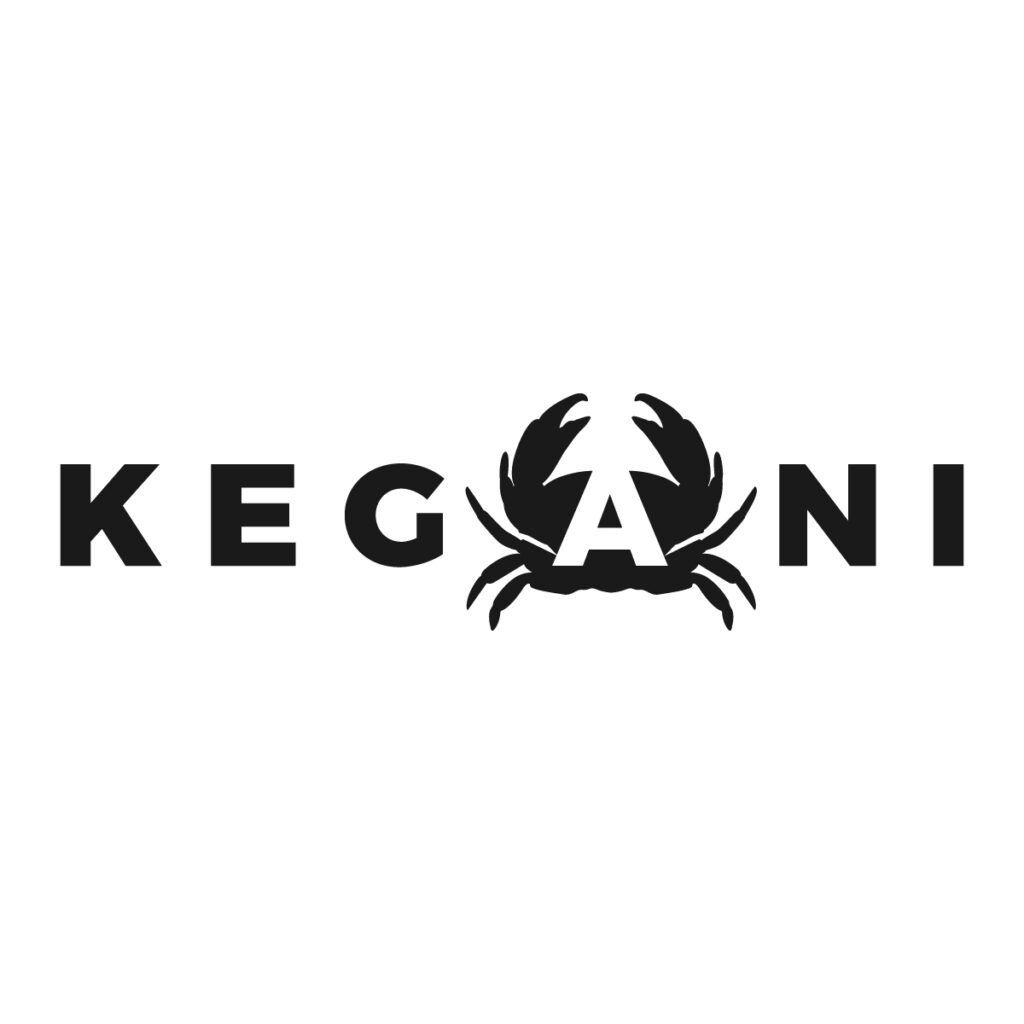If you’ve ever admired a knife with wave-like patterns on its blade, you’ve likely seen Damascus steel. Famous for its beauty and history, this material isn’t just eye-catching—it’s a serious contender for modern performance. So, is it strong enough for your high-demand products?
In this blog, we’ll explore its strength, commercial applications, and why it’s a game-changer for B2B clients like you—whether you’re sourcing OEM knife manufacturers or building a private label brand.
Let’s dive in!
What Is Damascus Steel?
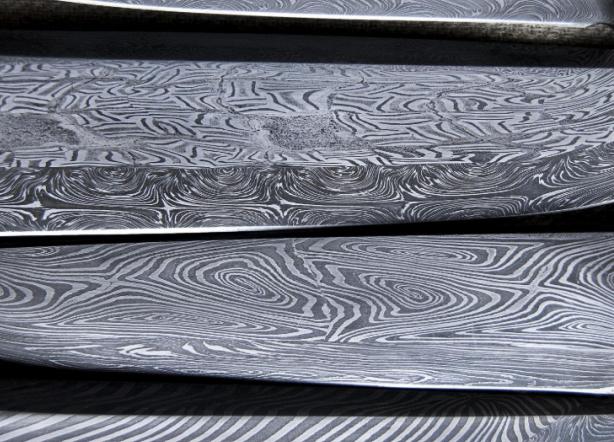
Named after the ancient city of Damascus, this steel earned its reputation centuries ago for crafting sharp, durable swords. Today, it’s made through pattern welding: layers of different steels—like high-carbon steel and nickel—are stacked, heated, hammered, and folded. This creates those stunning patterns while blending the steels’ strengths. For you, it’s a chance to offer knives—fixed blade or folding—that combine history with cutting-edge appeal. Want to dig deeper? Check out .
How Strong Is Damascus Steel?
Strength isn’t a one-size-fits-all concept—it’s a mix of hardness, tensile strength, and toughness. So, let’s break down how Damascus steel stacks up and why it’s a top pick for high-performance knife-making.
Hardness
Hardness measures a steel’s resistance to scratches or dents, and it’s key for knives that need to stay sharp.
On the Rockwell Hardness Scale (HRC), high-quality Damascus steel typically ranges from 58-62 HRC, comparable to premium VG-10 steel (58-61 HRC). This hardness makes Damascus steel ideal for blades requiring excellent edge retention, whether for pocket knife uses or heavy-duty cutting tasks.
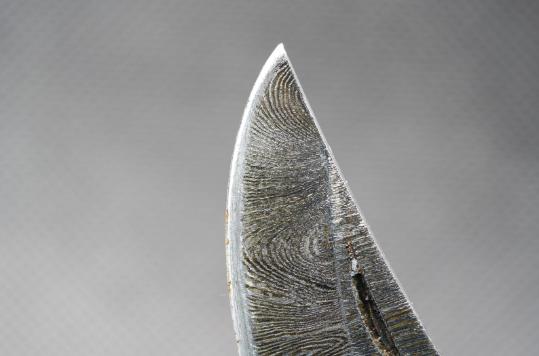
Tensile Strength
Tensile strength is about how much pulling or stretching a material can take before breaking. Research shows that some Damascus steels hit 1070 MPa, and with modern techniques like laser additive manufacturing, that can climb to 1300 MPa. For context, stainless steel (e.g., 304) sits at 500-700 MPa, while super steels like S90V range from 1000-1200 MPa. Translation? Damascus steel can handle serious stress, making it a reliable choice for durable knife blade shapes like the drop point blade or tanto blade.
Toughness
Toughness is the ability to absorb impact without cracking. Thanks to its layered structure, Damascus steel can shine here too. A blade with thousands of layers—say, 3125—can rival the toughness of single high-toughness steels. This balance of hardness and toughness is why it’s a favorite for fixed blade knives used in rugged outdoor settings.
Comparison with Other Steels
Here’s a quick snapshot:
| Property | High-Quality Damascus | Stainless Steel (304) | Super Steel (S90V) |
|---|---|---|---|
| Hardness (HRC) | 62-67 | 25-35 | 58-61 |
| Tensile Strength (MPa) | 1070-1300 | 500-700 | 1000-1200 |
| Toughness | Medium to High | High | Medium |
| Edge Retention | Excellent | Fair | Excellent |
| Maintenance | High (rust prevention) | Low | Medium |
When forged with premium steels like 20CV or S90V, Damascus can match or beat super steels in edge retention and sharpness. But beware—low-quality versions using soft steel or nickel might falter, so quality matters.
Is Damascus Steel Suitable for Commercial Use?
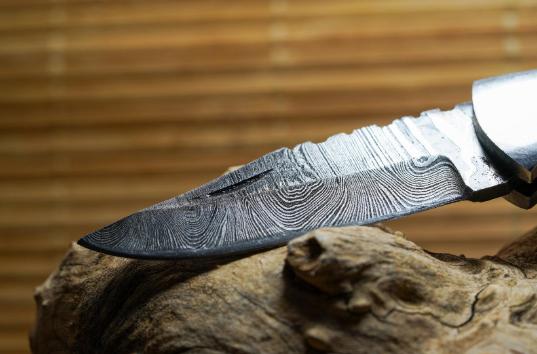
For B2B clients—think European and American sellers or SMEs—Damascus steel isn’t just strong; it’s a strategic asset. Here’s why it’s worth considering for your next product line:
Unmatched Aesthetic Appeal
Those swirling patterns aren’t just pretty—they’re a selling point. Each blade is unique, turning knives into conversation pieces. Whether it’s a sleek clip point blade or a sturdy spear point blade, Damascus steel adds a premium touch that customers notice. Perfect for private label knife manufacturers aiming to stand out.
Brand Differentiation
In a sea of generic stainless steel knives, Damascus steel screams exclusivity. It’s ideal for OEM or private label products, letting you offer something competitors can’t easily replicate. Pair it with a G10 handle or carbon fiber knife scales for a modern twist that elevates your brand.
Growing Market Demand
Western consumers are hungry for unique, handcrafted items with a story. Damascus steel fits the bill, blending history with artisanal appeal.
A Word of Caution
Not all Damascus steel is equal. Low-quality options can suffer from delamination or cracking, risking your reputation. That’s why partnering with a trusted supplier like Keganico, one of the best Chinese knife brands, is non-negotiable. They deliver consistency and quality for your OEM knife manufacturing needs.
Maintenance and Supplier Tips
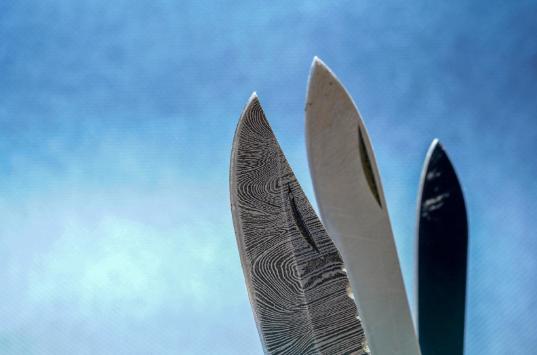
Damascus steel shines, but it’s not low-maintenance. Here’s what you need to know:
- Rust Prevention: High-carbon layers can rust if neglected. Regular oiling and avoiding moisture—like steering clear of leather sheaths—are musts.
- Cost: Quality comes at a price—expect to pay $200+ for a high-end Damascus steel knife. Cheaper options ($50-100) might cut corners on materials or craftsmanship.
- Choosing a Supplier: Look for expertise, quality materials, and customization options. A supplier like Kegani offers everything from knife opening mechanisms to tailored designs, ensuring your products meet market demands.
Conclusion: Why Damascus Steel Matters for Your Business
So, is Damascus steel strong? Absolutely—when crafted with high-quality steels and expert forging, it boasts 62-67 HRC hardness, 1070-1300 MPa tensile strength, and impressive toughness. Beyond strength, its unique patterns and craftsmanship make it a standout choice for B2B clients looking to differentiate their offerings. Yes, it requires maintenance and a bigger investment, but the payoff in performance and brand value is worth it.
Ready to bring Damascus steel into your product line? Kegani specializes in top-tier knives for OEM, private label, and wholesale needs.
Get started now—visit our inquiry page or get your quote and let’s craft something extraordinary together!
